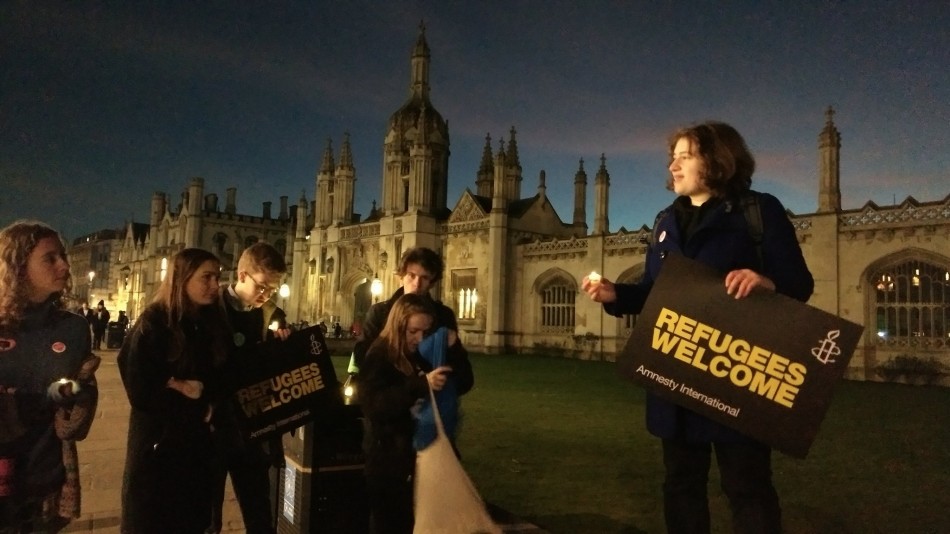During the month of November, CUAI held a daily social media campaign to raise money for Syria Relief.
Syria Relief is a charity providing emergency medical care, food aid and education for those 7.6 million internally displaced by the conflict, thus helping to reduce the mass migration from Syria. Overall, we raised 125.55 pounds.
Every day, we would post a statistic about the refugee crisis, which the UN has determined is the largest since WWII, followed by a link to our fundraising page. These statistics were contributed each by a different member of the university-wide group, and the donations by both members and supporters of the cause. The participation from the entire university, as well as the awareness-raising from those who follow us on social media world-wide, is part of what makes Amnesty an effective organization-by encouraging participation, and through education, we are able to influence opinion and bring light to the issues featured.
The campaign culminated in a candlelight vigil, where members of Amnesty got together and led a procession around Cambridge town center, a visible demonstration of solidarity making use of the well-known Amnesty candle logo. The procession ended at Clare College Chapel, where we were met by musicians and hot drinks. Each participant was invited to read out a statistic to be put in a video (forthcoming) of the entire campaign, a lasting product to commemorate CUAI’s efforts, but more importantly, a permanent artifact to raise awareness of the refugee crisis.
*1/11*
One in five people in Lebanon are refugees.
*2/11*
2 million asylum applications were processed worldwide this year, with Germany receiving the most applications.
*3/11*
Yusra Mardini is a Syrian refugee who swam for 3 hours to push a sinking boat to safety, saving innocent lives. This summer, she competed as a swimmer at the Rio Olympics!
Continue reading CUAI Michaelmas 2016 Campaign for Syria Relief

